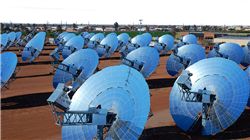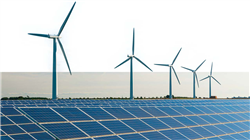University certificate
The world's largest faculty of engineering”
Description
Thanks to this 100% online Postgraduate diploma, you will carry out preventive maintenance of Photovoltaic Installations to maximize the useful life of the equipment"

The rapid evolution of renewable energy technologies has placed solar photovoltaic energy at the center of the global energy transformation. Among its advantages is the fact that it produces no greenhouse gas emissions during operation. It therefore contributes to the reduction of the carbon footprint. In this sense, it also reduces dependence on fossil fuels, which significantly improves energy safety. Given this, engineers need to have a comprehensive view on the Development of Photovoltaic Installations, ranging from the selection of components to the installation and maintenance of the systems.
Within this framework, TECH presents a complete Postgraduate diploma in Development of Photovoltaic Installations. The academic itinerary will delve into the selection criteria of photovoltaic modules, which will allow professionals to maximize power generation in available spaces. Along the same lines, the syllabus will delve into the creation of alternating current photovoltaic plants, taking into account key aspects such as the technical parameters of inverters, transformer selection criteria or high-voltage wiring. In addition, the program will provide students with the most innovative PV plant maintenance strategies. In this way, graduates will be able to detect potential problems (such as loose connections, damaged cables or inverter failures) at an early stage before they become major failures.
The Relearning pedagogical methodology, together with the multimedia resources, allows students to access the teaching material 24 hours a day, 7 days a week, and in a flexible manner. This program is taught 100% online, which means that students can learn at their own pace and according to their own schedule. The only thing professionals will need is an electronic device with an Internet connection to access the Virtual Campus. Undoubtedly, a high intensity educational experience that will raise the professional horizons of engineers.
A university program that gives you the flexibility to balance your studies with the rest of your day-to-day activities"
This Postgraduate diploma in Development of Photovoltaic Installations contains the most complete and up-to-date scientific program on the market. The most important features include:
- The development of case studies presented by experts in Photovoltaic Energy
- The graphic, schematic, and practical contents with which they are created, provide practical information on the disciplines that are essential for professional practice
- Practical exercises where the self-assessment process can be carried out to improve learning
- Its special emphasis on innovative methodologies
- Theoretical lessons, questions to the expert, debate forums on controversial topics, and individual reflection assignments
- Content that is accessible from any fixed or portable device with an Internet connection
You will delve into the Technical Parameters of Transformers and select the most suitable components for the operating conditions of the system"
The program's teaching staff includes professionals from the sector who bring to this program the experience of their work, in addition to recognized specialists from prestigious reference societies and universities.
The multimedia content, developed with the latest educational technology, will provide the professional with situated and contextual learning, i.e., a simulated environment that will provide immersive education programmed to prepare for real situations.
This program is designed around Problem-Based Learning, whereby the professional must try to solve the different professional practice situations that arise during the course. For this purpose, the students will be assisted by an innovative interactive video system created by renowned and experienced experts.
Looking to implement the most sophisticated PV plant maintenance strategies in your daily practice? Achieve it with this program in only 540 hours"

TECH Relearning will allow you to learn with less effort and better performance, involving you more in your specialization as an engineer"
Syllabus
By means of this university program, engineers will have a solid understanding of the fundamentals of solar photovoltaic energy. The syllabus will delve into aspects ranging from selection criteria for photovoltaic modules or technical parameters of batteries to electrical protections in direct current. In line with this, the syllabus will delve into wiring in alternating current and low voltage, which will enable graduates to prevent electrical risks such as short circuits or electric shocks. In addition, during the course of the program, professionals will acquire the skills to properly select the components of photovoltaic systems.

You will incorporate into your practice the most sophisticated strategies for installing photovoltaic systems and ensure that they are carried out efficiently"
Module 1. Direct Current Photovoltaic Installations
1.1. Solar Cell Technologies
1.1.1. Solar Technologies
1.1.2. Evolution by Technology
1.1.3. Comparative Analysis of the main Commercial Technologies
1.2. Photovoltaic Modules
1.2.1. Electrical Technical Parameters
1.2.2. Other Technical Parameters
1.2.3. Technical Regulatory Framework
1.3. Photovoltaic Module Selection Criteria
1.3.1. Technical Criteria
1.3.2. Economic Criteria
1.3.3. Other Criteria
1.4. Optimizers and Regulators
1.4.1. Optimizers
1.4.2. Regulators
1.4.3. Advantages and Disadvantages
1.5. Battery Technologies
1.5.1. Types of Cells
1.5.2. Evolution by Technology
1.5.3. Comparative Analysis of the main Commercial Technologies
1.6. Technical Parameters of Batteries
1.6.1. Technical Parameters of Lead-Acid Batteries
1.6.2. Technical Parameters of Lithium Batteries
1.6.3. Durability, Degradation and Efficiency
1.7. Batteries Selection Criteria
1.7.1. Technical Criteria
1.7.2. Economic Criteria
1.7.3. Other Criteria
1.8. Direct Current Electrical Protections
1.8.1. Protection Against Direct and Indirect Contacts
1.8.2. Protection Against Overvoltage
1.8.3. Other Protections
1.8.3.1. Grounding, Insulation, Overload and Short-Circuit Systems
1.9. Direct Current Wiring
1.9.1. Type of Wiring
1.9.2. Wiring Selection Criteria
1.9.3. Dimensioning of Wiring, Conduits, Cable Ducts, Cable Boxes
1.10. Fixed and Solar Tracking Structures
1.10.1. Types of Structures with Solar Tracking. Materials
1.10.2. Types of Structures with Solar Tracking. One or Two Axes
1.10.3. Advantages and Disadvantages of the Type of Solar Tracking
Module 2. Alternating Current Photovoltaic Installations
2.1. Inverter Technology
2.1.1. The Inverter Technology
2.1.2. Evolution by Technology
2.1.3. Comparative Analysis of the main Commercial Technologies
2.2. Technical Parameters of the Inverters
2.2.1. Electrical Technical Parameters
2.2.2. Other Technical Parameters
2.2.3. International Normative Framework
2.3. Inverters Selection Criteria
2.3.1. Technical Criteria
2.3.2. Economic Criteria
2.3.3. Other Criteria
2.4. Transformer Technology
2.4.1. Classification of Transformer Technologies
2.4.2. Evolution by Technology
2.4.3. Comparative Analysis of the main Commercial Technologies
2.5. Technical Parameters of Transformers
2.5.1. Electrical Technical Parameters
2.5.2. High-Voltage Switchgear: Switches, Disconnectors and Self-Operated Valves
2.5.3. International Normative Framework
2.6. Transformers Selection Criteria
2.6.1. Technical Criteria
2.6.2. Economic Criteria
2.6.3. Other Criteria
2.7. Alternating Current (AC) Electrical Protections
2.7.1. Protection Against Indirect Contacts
2.7.2. Protection Against Overvoltage
2.7.3. Other Protections: Grounding, Overload and Short-Circuit Systems
2.8. Alternating Current and Low Voltage Wiring
2.8.1. Type of Wiring
2.8.2. Wiring Selection Criteria
2.8.3. Wire Sizing. Conduits, Manholes
2.9. High-Voltage Wiring
2.9.1. Type of Wiring, Poles
2.9.2. Wiring Selection Criteria, Layouts, Poles, Declaration of Public Utility
2.9.3. Wire Sizing
2.10. Civil Works
2.10.1. Civil Works
2.10.2. Accesses, Rainwater Outlets Drainage, Enclosures, etc.
2.10.3. Electrical Evacuation Networks. Transport Capacity
Module 3. Assembly, Operation and Maintenance of Photovoltaic Plants
3.1. Assembly of Photovoltaic Plants
3.1.1. Health and Safety
3.1.2. Selection of Equipment on the Market
3.1.3. Incident Management
3.2. Commissioning of Photovoltaic Plants. Technical Aspects
3.2.1. Commissioning Operations
3.2.2. Grid Codes. Control Center
3.2.3. Incident Management. Thermography, Electroluminescence, Certifications
3.3. Commissioning of Self-Consumption Installations. Technical Aspects
3.3.1. Commissioning Operations
3.3.2. Monitoring
3.3.3. Incident Management. Thermography, Electroluminescence, Certifications
3.4. Commissioning of Off-Grid Installations. Technical Aspects
3.4.1. Commissioning Operations
3.4.2. Monitoring
3.4.3. Incident Management
3.5. Operation and Maintenance Strategies for Photovoltaic Plants
3.5.1. Operation Strategies
3.5.2. Maintenance Strategies. Fault Detection
3.5.3. Internal and External Incident Management
3.6. Operation and Maintenance Strategies for Self-Consumption Installations without Batteries.
3.6.1. Operation Strategies. Surplus Management
3.6.2. Maintenance Strategies. Fault Detection
3.6.3. Internal and External Incident Management
3.7. Operation and Maintenance Strategies for Self-Consumption Installations with Batteries.
3.7.1. Operation Strategies. Surplus Management
3.7.2. Maintenance Strategies. Fault Detection
3.7.3. Internal and External Incident Management
3.8. Operation and Maintenance Strategies for Stand-Alone Installations
3.8.1. Operation Strategies
3.8.2. Maintenance Strategies. Fault Detection
3.8.3. Internal and External Incident Management
3.9. Health and Safety during Assembly, Operation and Maintenance
3.9.1. Working at Heights. Roofs, Electric Poles
3.9.2. High Voltage Works
3.9.3. Other Works
3.10. As Built-Project Documentation
3.10.1. Commissioning Documents
3.10.2. Final Certifications
3.10.3. Modifications and As-Built Project

TECH provides you with a quality and flexible university program, which you can access from any device with an Internet connection. Enroll now!”
Postgraduate Diploma in Development of Photovoltaic Installations
This Postgraduate Diploma in Development of Photovoltaic Installations created by TECH Global University is a specialized program in one of the most dynamic and relevant fields of the energy sector. This program, taught completely online, will provide you with a comprehensive and advanced understanding of the development of photovoltaic projects, ranging from technical and engineering aspects, to the management and financing of solar projects. Here, you will gain in-depth knowledge of the fundamental principles of solar photovoltaics, including the physics of semiconductors and the operation of solar cells. In addition, you will explore the different photovoltaic technologies available on the market, such as monocrystalline, polycrystalline and thin-film modules, providing a solid foundation for selecting the most suitable components according to the specific needs of each project. Finally, you will address the design and development of photovoltaic systems, ranging from small residential installations to large commercial solar plants. You will learn to use specialized tools and software for system design and simulation, ensuring that projects are efficient, cost-effective and sustainable.
Become a specialist in the development of photovoltaic installations
The online modality of the course offers unparalleled flexibility, allowing you to study at your own pace and from any location. This interactive and dynamic learning structure facilitates the acquisition of knowledge and skills in an effective way, adapting to your needs and schedule. Upon completion, you will be prepared to take on leadership roles in the solar energy sector. You will be able to work in engineering firms, energy consultancies, government agencies and NGOs, contributing to the development and implementation of innovative and sustainable solar projects. Your ability to design, manage and optimize photovoltaic projects will make you a highly valued professional in a growing and constantly evolving job market. This Postgraduate Diploma in Development of Photovoltaic Installations not only provides a high-quality education, but also opens doors to new career opportunities in a field that is essential for the sustainable future of the planet. Enroll now and take an important step towards a successful and rewarding career in the renewable energy sector. We look forward to seeing you!







